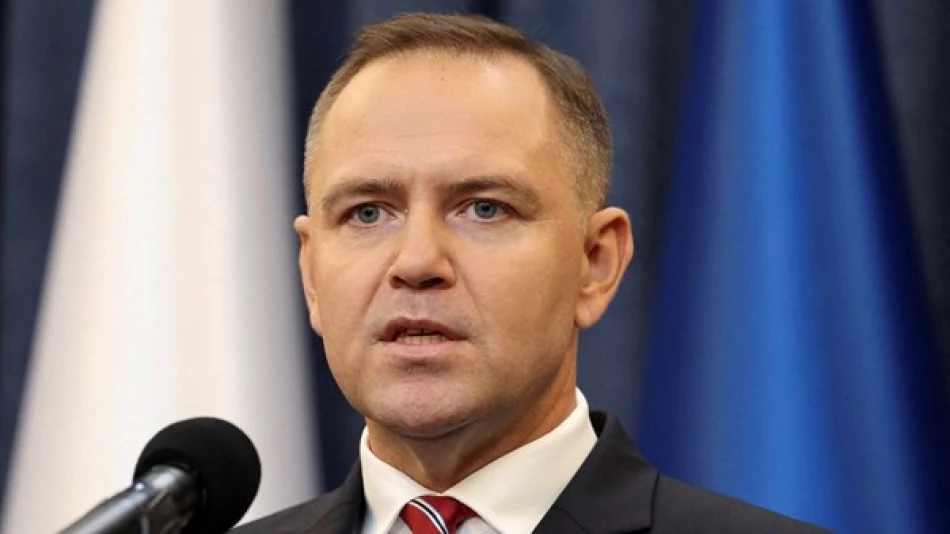
Polish President Rejects Legislation Affecting Ukrainian Refugees
Poland's President Vetoes Ukrainian Refugee Aid Extension, Demanding Work Requirements
Polish President Karol Nawrocki has vetoed legislation that would have extended financial assistance to Ukrainian refugees until March 2026, insisting that aid should only go to those who are employed. The move marks a significant shift in Poland's refugee policy and reflects growing domestic pressure over the costs of supporting over one million Ukrainian refugees who fled after Russia's 2022 invasion.
The Political Calculus Behind the Veto
Nawrocki's decision fulfills a key campaign promise to reduce refugee assistance, signaling a hardening stance on what has become a politically sensitive issue in Poland. Speaking to journalists Monday, the president was unequivocal: "This aid should be limited to Ukrainians who are working in Poland only," adding that he would not change his position on the matter.
The vetoed legislation, which had parliamentary approval, would have extended the current aid program that expires in September. The timing creates immediate pressure on lawmakers to find a compromise or risk leaving hundreds of thousands of refugees without support.
Economic Strain Drives Policy Shift
Poland's refugee burden has been extraordinary by any measure. Since February 2022, the country has absorbed more Ukrainian refugees per capita than any other nation, with the majority being women and children who face significant employment barriers. The financial cost has strained public resources and created voter resentment that politicians can no longer ignore.
Nawrocki's argument centers on what he sees as an inequitable system: "Polish citizens are being treated worse in their own country than Ukrainian guests," he argued, specifically citing free healthcare coverage for unemployed refugees as creating a two-tier system that disadvantages locals.
Regional Context and European Implications
This policy shift puts Poland at odds with the broader European approach to Ukrainian refugee assistance, which has generally maintained unconditional support. However, Poland's position reflects a growing trend across Europe where initial solidarity is giving way to concerns about long-term integration and costs.
Unlike Germany or the Netherlands, which have maintained more generous unconditional aid programs, Poland's work-requirement approach resembles policies in some U.S. states that tie welfare benefits to employment. The key difference is that Poland is dealing with war refugees rather than economic migrants.
What This Means for Ukrainian Families
The practical impact could be severe for Ukrainian families, particularly single mothers with young children who comprise a significant portion of the refugee population. Employment barriers including language skills, childcare responsibilities, and credential recognition have kept many refugees out of the formal workforce despite their desire to work.
The veto creates uncertainty just as many Ukrainian refugees were making long-term settlement decisions. Some may now consider relocating to other EU countries with more stable support systems, potentially creating a secondary migration wave within Europe.
Political Maneuvering Ahead
Parliament now faces the challenge of crafting compromise legislation that can satisfy both the president's work requirements and humanitarian concerns. Possible solutions could include expanded job training programs, childcare support to enable employment, or gradual phase-outs rather than immediate cuts.
The standoff also tests Poland's relationship with Ukraine and its position as a key ally in the conflict with Russia. While military and political support remains strong, this domestic policy shift suggests that even Poland's patience with refugee costs has limits, potentially influencing how other European nations approach their own Ukrainian refugee programs.
Most Viewed News

 Layla Al Mansoori
Layla Al Mansoori






